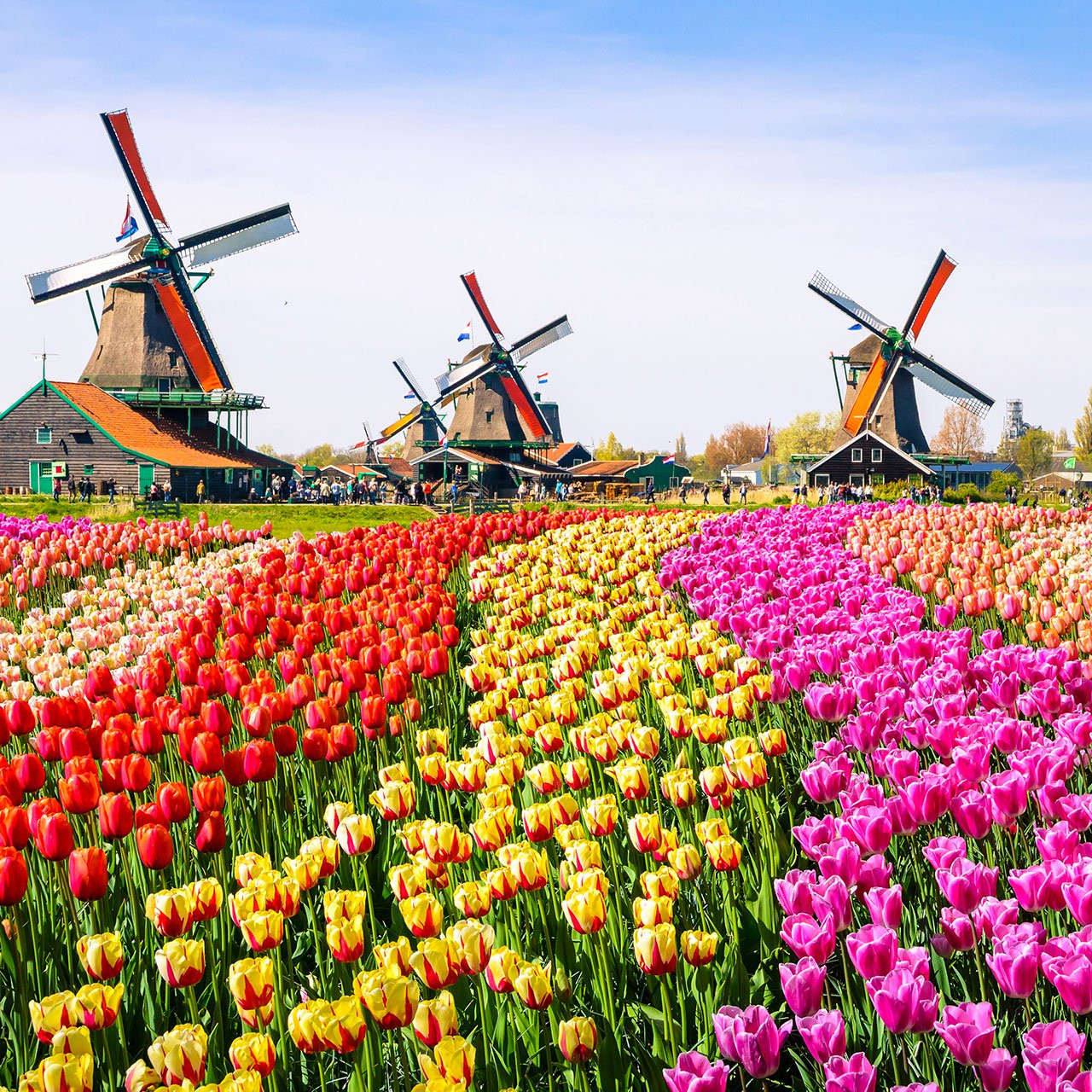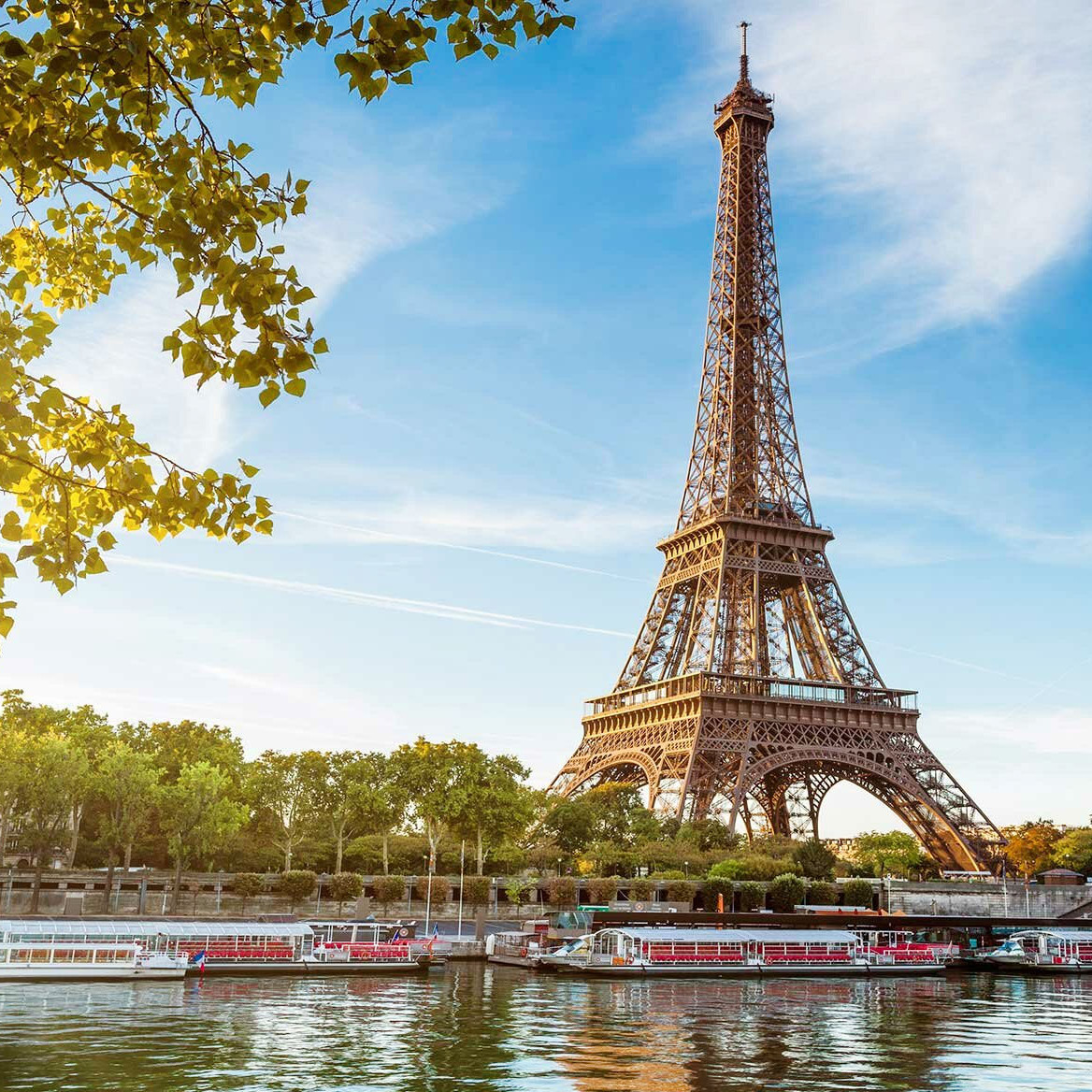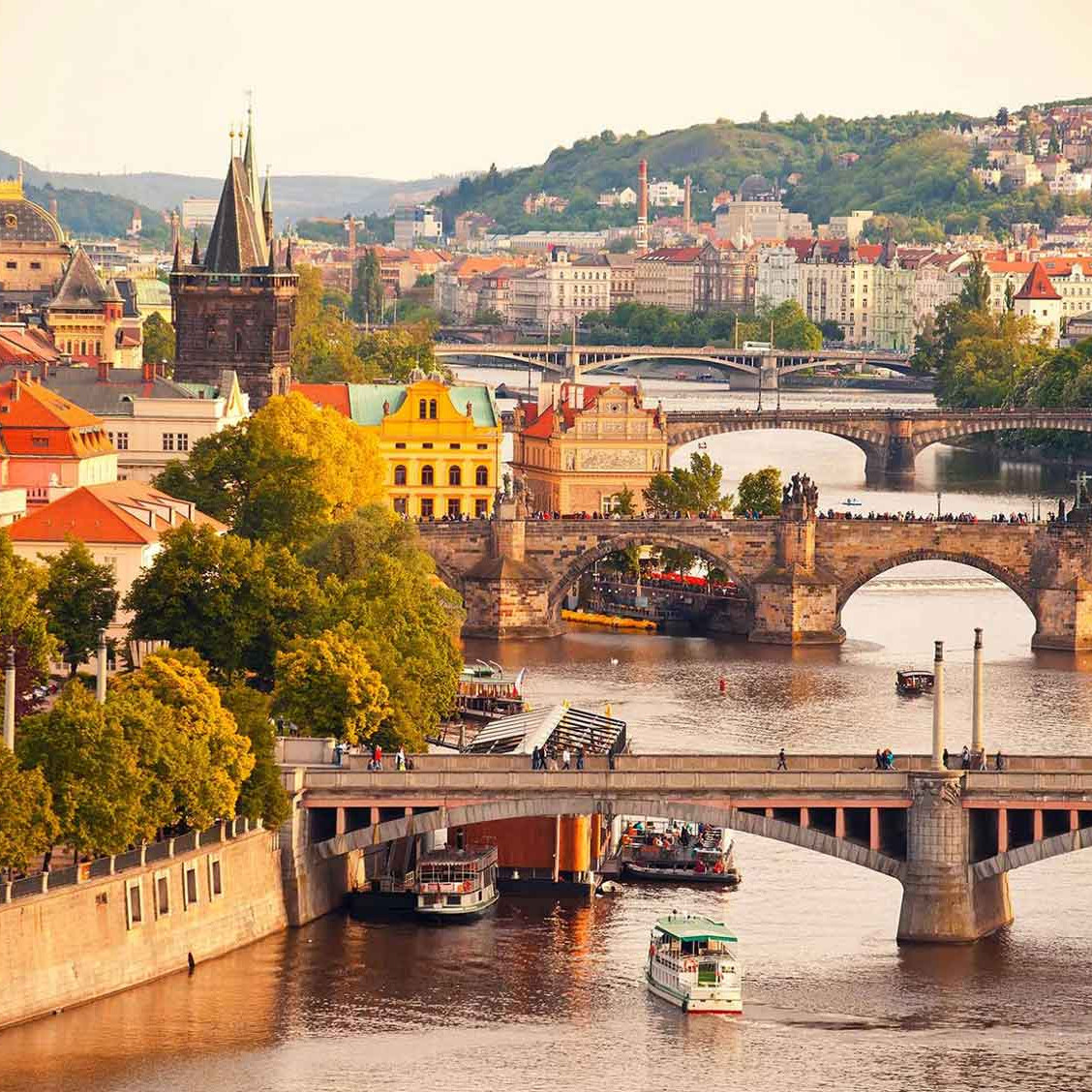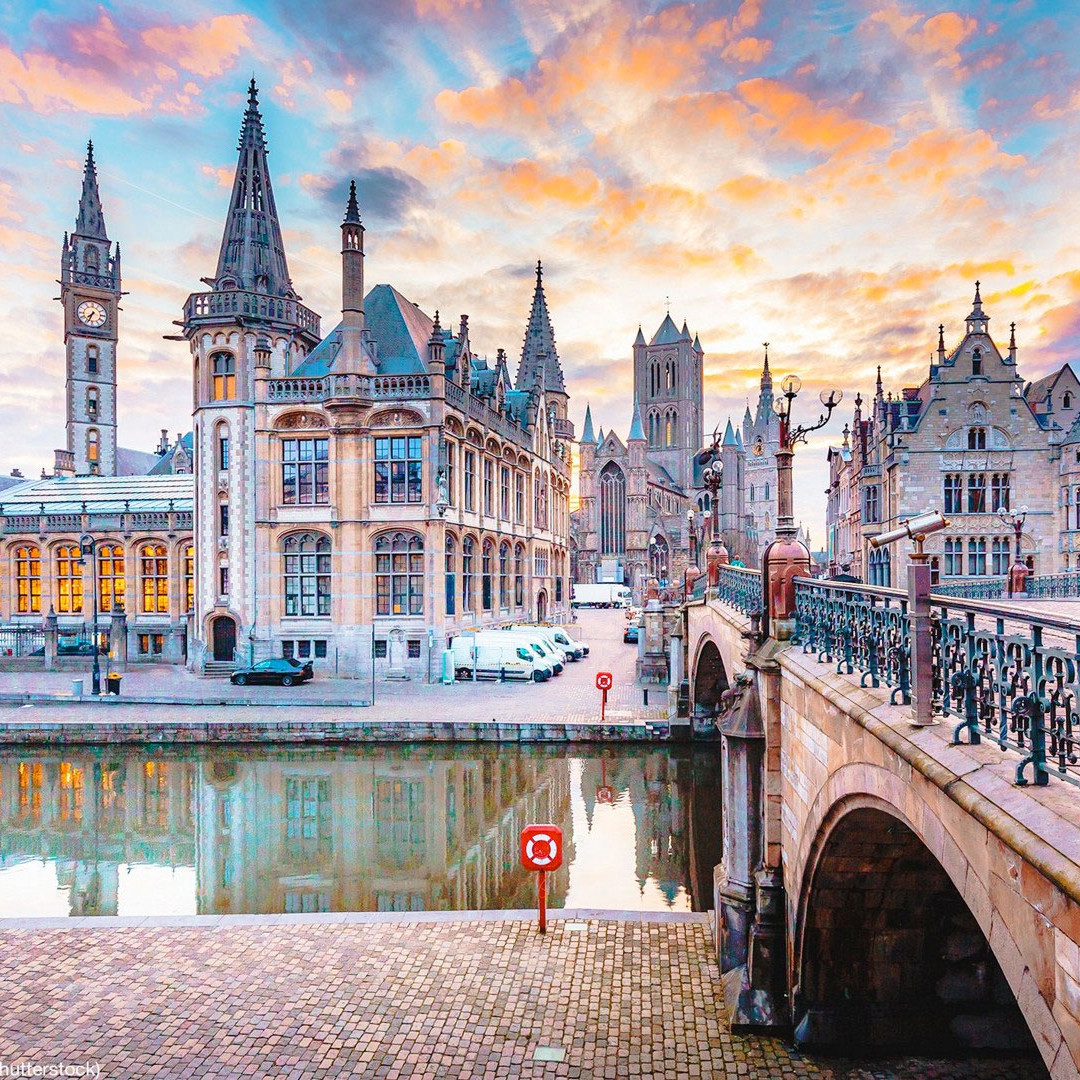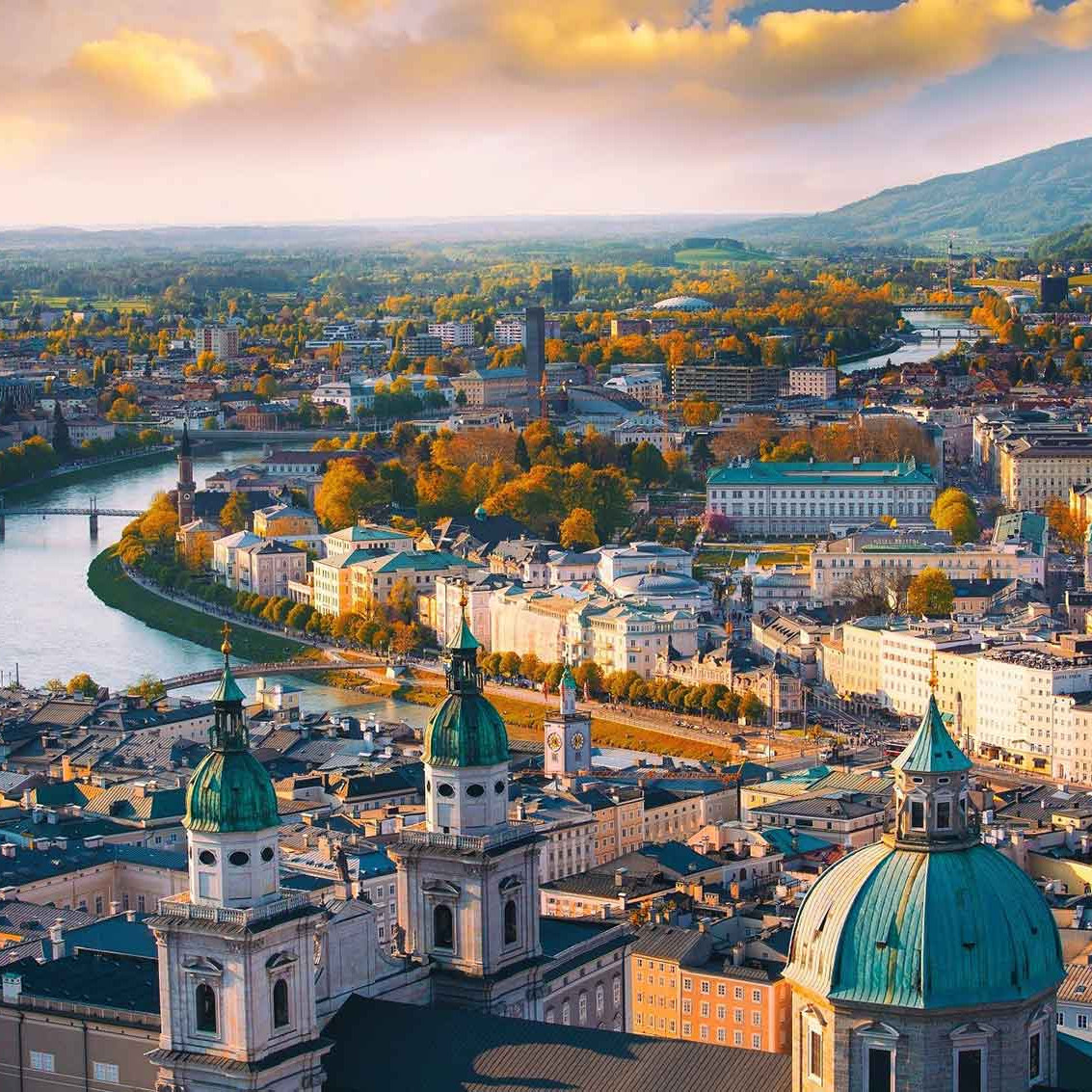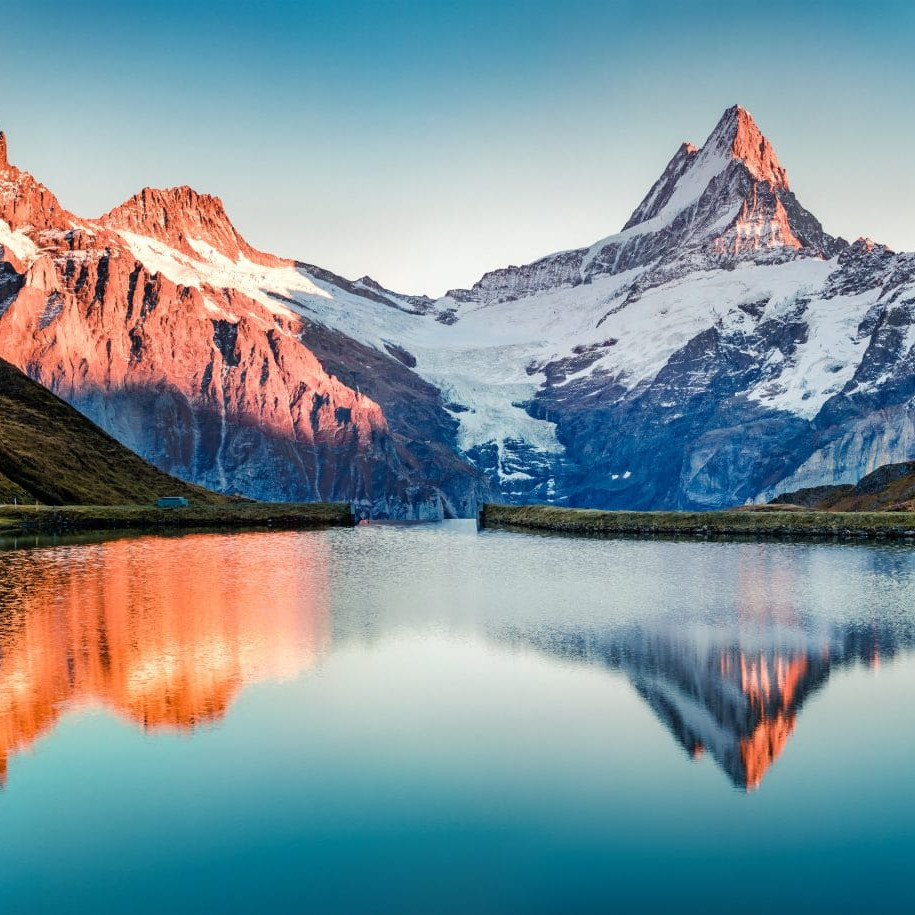Located in western Europe, Germany has a rich history that dates back 2 millennia. With beautiful scenery, a great mix between medieval and modern and one of the biggest beer industries and festivals in the world, Germany has something for everyone.
Why Visit Germany
CULTURE & HISTORY
The area that is now Germany was inhabited by Germanic tribes for many centuries. They later became part of the Frankish Empire and then the Roman Empire. The country has played a central role in shaping European history, from the reign of Charlemagne to the fall of the Berlin Wall. Visitors can explore iconic historical sites such as the Berlin Wall Memorial, the Brandenburg Gate, and the historic city centers of Munich and Dresden.
LANDSCAPES
Germany’s landscapes offer a stunning array of natural beauty. From the majestic peaks of the Bavarian Alps to the picturesque valleys of the Rhine and Moselle rivers, Germany is a paradise for nature lovers. The Black Forest, with its dense forests and charming villages, provides ample opportunities for hiking and outdoor adventures.
BEER
Germans are renowned for their beer, however, they did not invent it (middle easterns did around 13,000 years ago), but german monasteries starting producing this heavenly drink a millenia ago, when drinking beer was safer than drinking water. With the pass of years, the beer industry revolutionized (they even have a purity law for it), and Germany has set global standards and created more than 7,000 varieties of beer. Nowadays, the country hosts the largest beer festival in the world, the Oktoberfest.
ARCHITECTURE
The architecture of Germany has a long, rich and diverse history, combining influences from elsewhere in Europe with its own national character, and characterized by a high degree of regional diversity, caused by centuries of fragmentation. Every major European style from Roman to Postmodern is represented, including Medieval Romanesque, Gothic, Renaissance, Baroque, and the later Neo-Classical and Neo-Renaissance, with still standing representations of each period in different cities of the country.
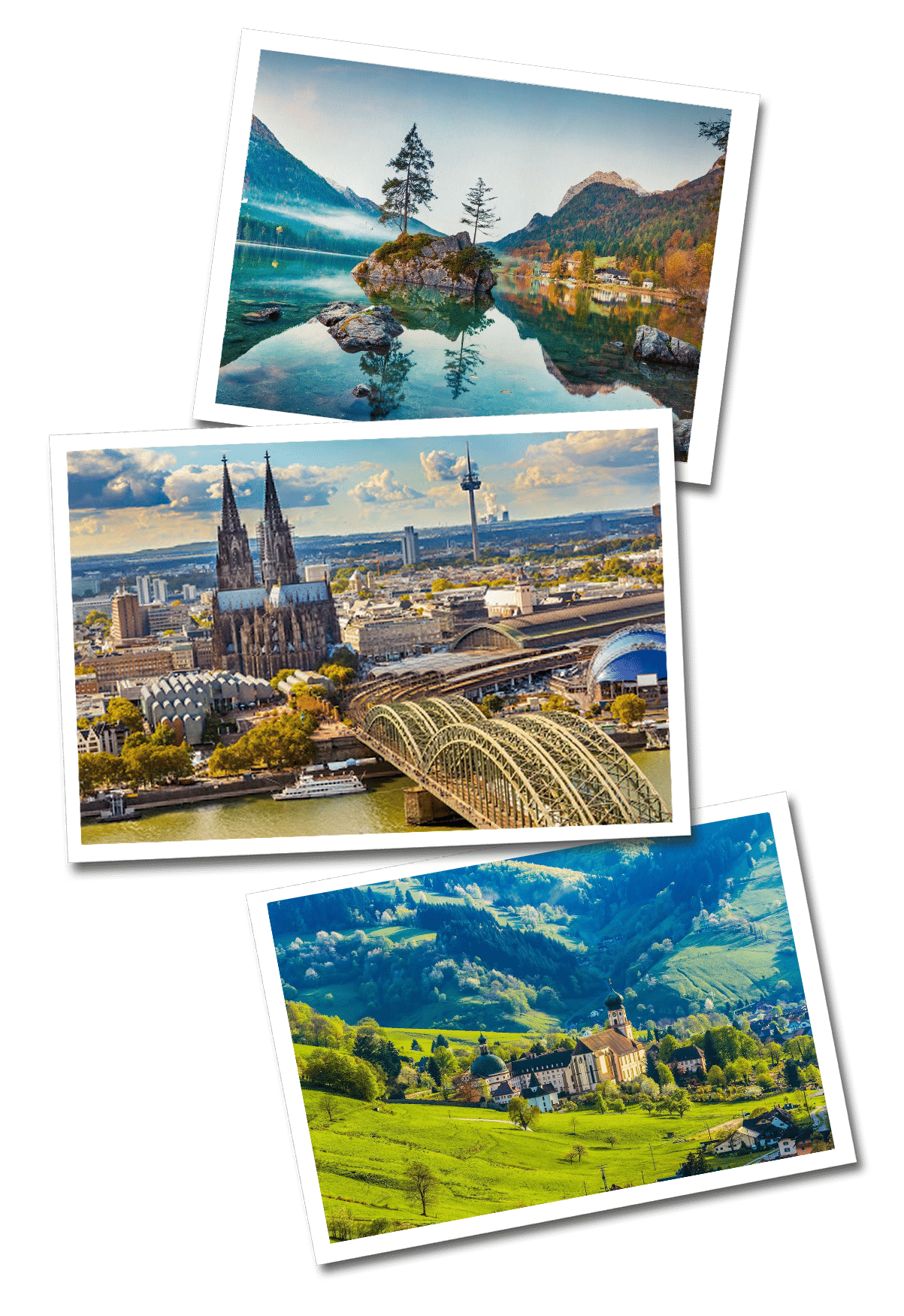
Located in western Europe, Germany has a rich history that dates back 2 millennia. With beautiful scenery, a great mix between medieval and modern and one of the biggest beer industries and festivals in the world, Germany has something for everyone.

Why Visit Germany
CULTURE & HISTORY
The area that is now Germany was inhabited by Germanic tribes for many centuries. They later became part of the Frankish Empire and then the Roman Empire. The country has played a central role in shaping European history, from the reign of Charlemagne to the fall of the Berlin Wall. Visitors can explore iconic historical sites such as the Berlin Wall Memorial, the Brandenburg Gate, and the historic city centers of Munich and Dresden.
LANDSCAPES
Germany’s landscapes offer a stunning array of natural beauty. From the majestic peaks of the Bavarian Alps to the picturesque valleys of the Rhine and Moselle rivers, Germany is a paradise for nature lovers. The Black Forest, with its dense forests and charming villages, provides ample opportunities for hiking and outdoor adventures.
BEER
Germans are renowned for their beer, however, they did not invent it (middle easterns did around 13,000 years ago), but german monasteries starting producing this heavenly drink a millenia ago, when drinking beer was safer than drinking water. With the pass of years, the beer industry revolutionized (they even have a purity law for it), and Germany has set global standards and created more than 7,000 varieties of beer. Nowadays, the country hosts the largest beer festival in the world, the Oktoberfest.
ARCHITECTURE
The architecture of Germany has a long, rich and diverse history, combining influences from elsewhere in Europe with its own national character, and characterized by a high degree of regional diversity, caused by centuries of fragmentation. Every major European style from Roman to Postmodern is represented, including Medieval Romanesque, Gothic, Renaissance, Baroque, and the later Neo-Classical and Neo-Renaissance, with still standing representations of each period in different cities of the country.
Bucket List
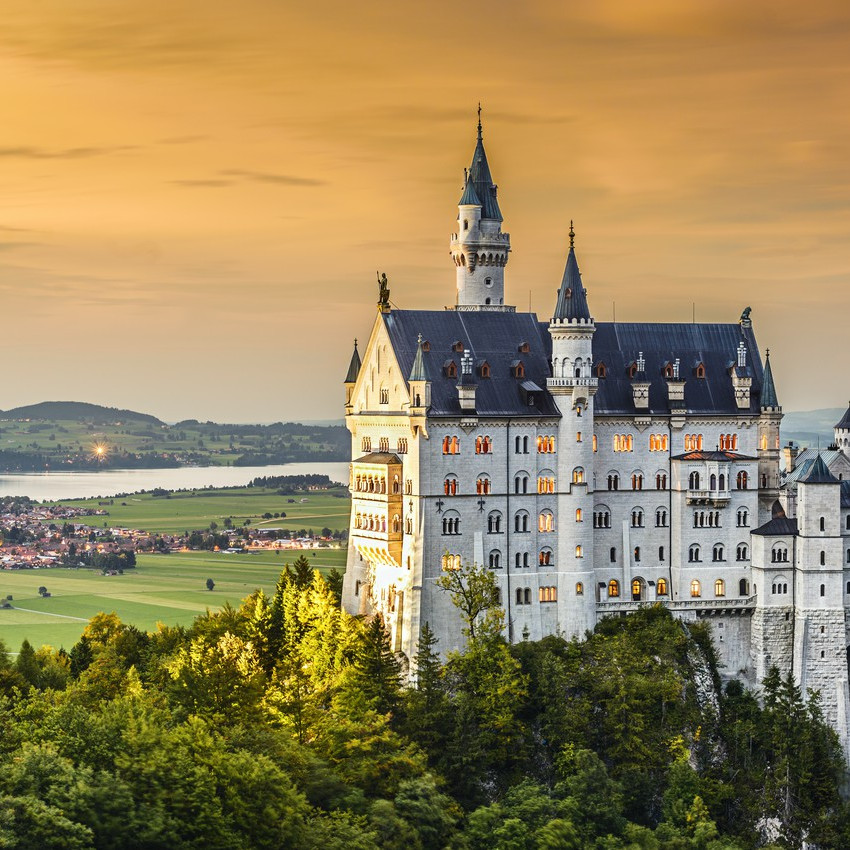
Tour the Bavarian Alps
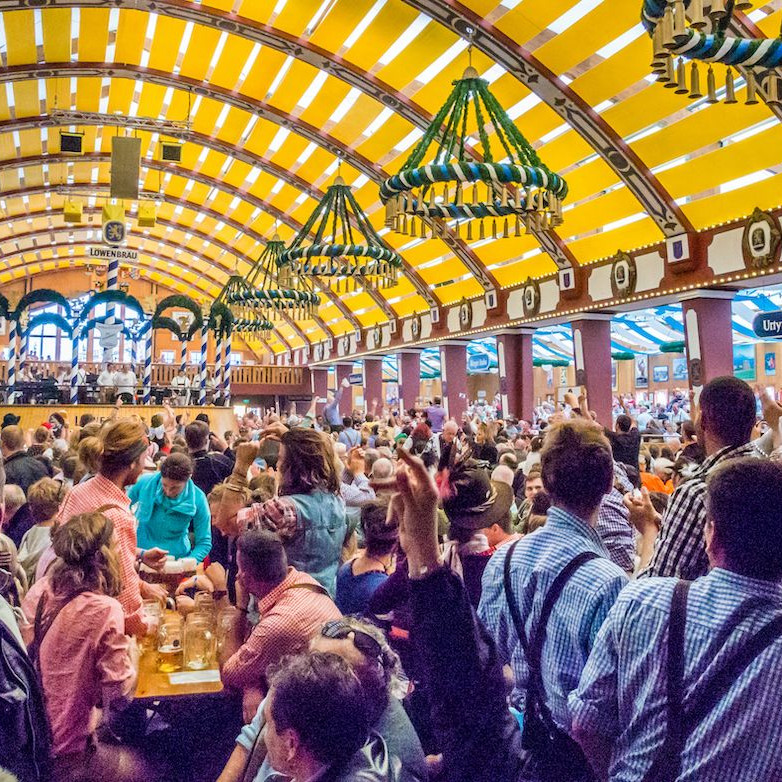
Enjoy a Oktoberfest in Munich
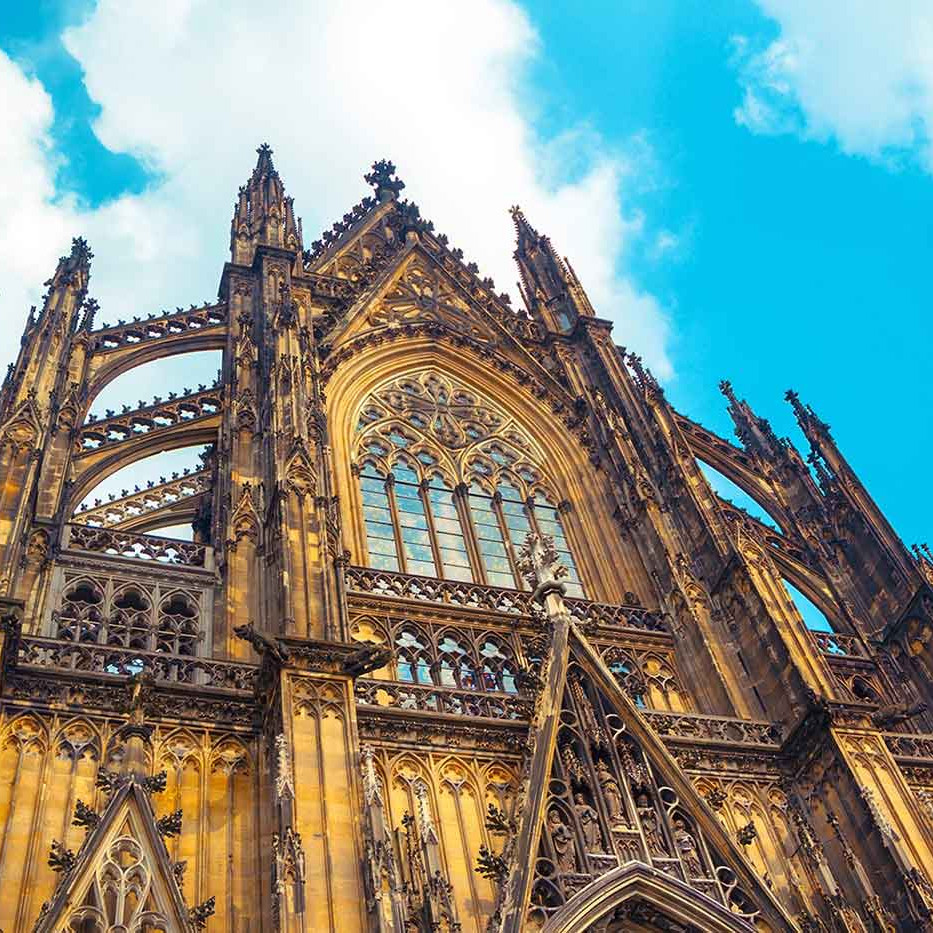
Admire Cologne’s Cathedral
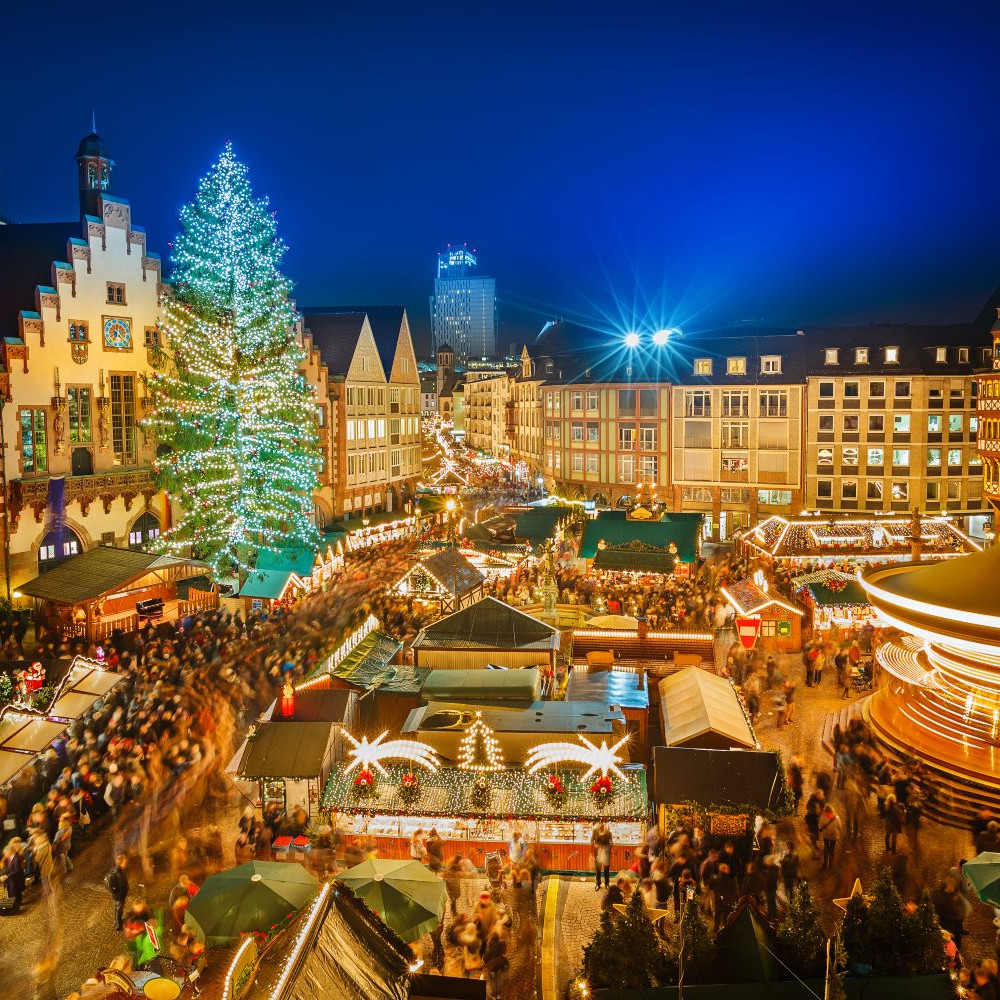
Experience a Christmas Market in Nuremberg

Walk along the former Berlin Wall
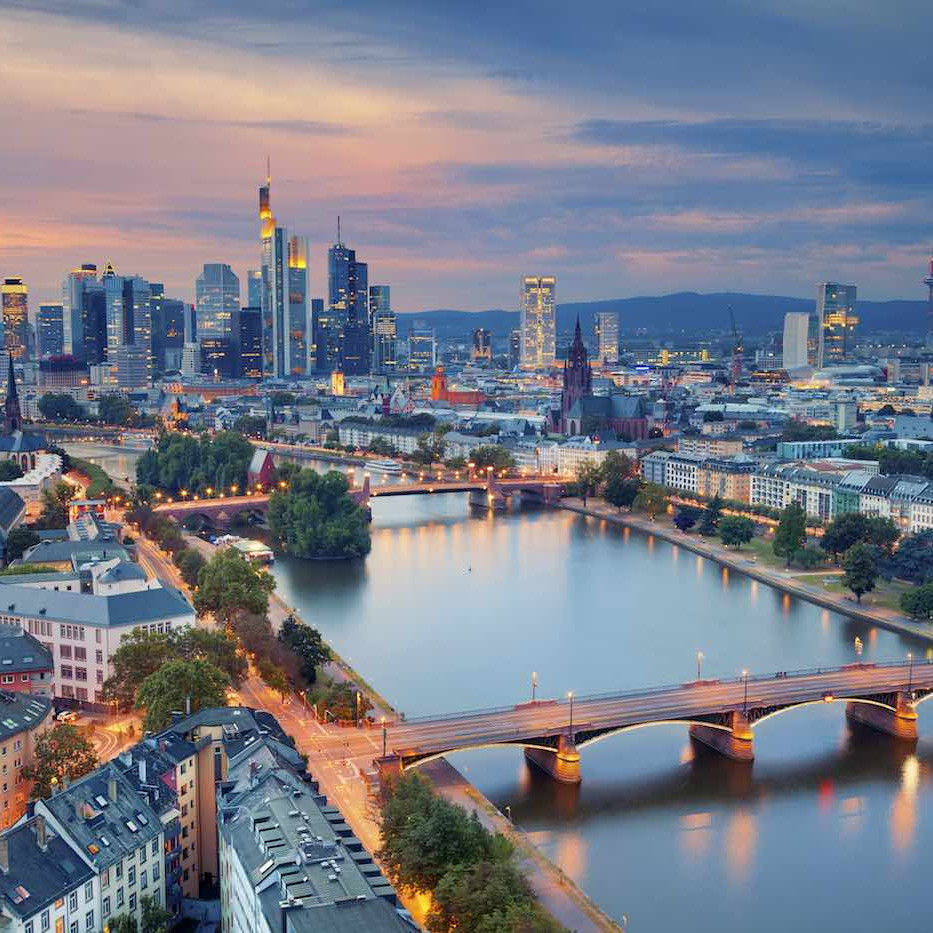
Explore the Financial Sector in Frankfurt
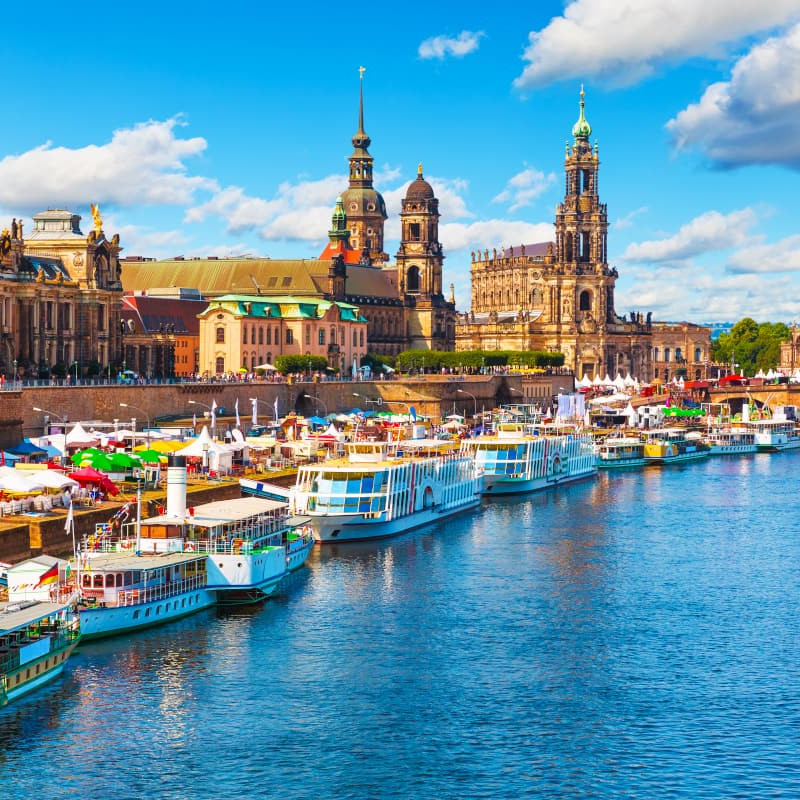
Escape to Dresden
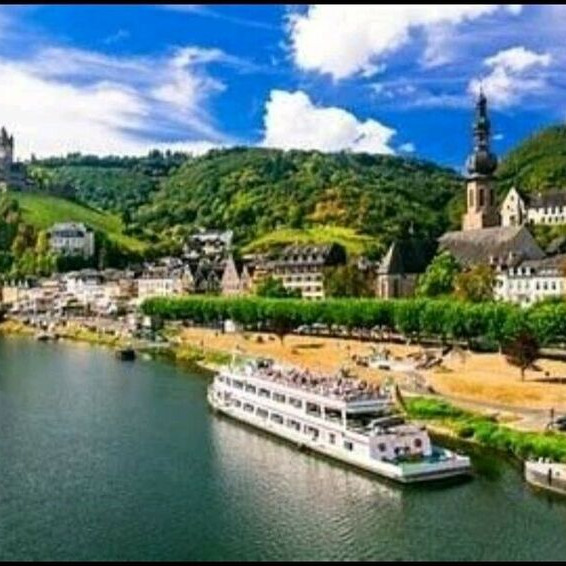
Cruise the Rhine
What to expect
LANGUAGE
Germany’s official language is German, spoken by the majority of the population. It is a West Germanic language and is widely used in everyday life, business, and government. While English is also spoken and understood by many Germans, especially in tourist areas and major cities, it is always helpful to learn a few basic phrases in German to enhance your travel experience and interact with locals.
ELECTRICITY
In Germany the standard voltage is 230 V and the frequency is 50 Hz. That’s the standard voltage in the UK, Europe, Australia and most of Asia and Africa; If you are traveling from the US you will need an adaptor.
CURRENCY
Euro is the official currency in Germany. Other foreign currencies, like dollars, might be accepted at tourist attractions and hotels, but they won’t be accepted at other establishments. Credit cards are widely accepted, and you can exchange your money at any bank or directly withdraw it from the ATM.
CLIMATE
Germany has a temperate seasonal climate. Summers (June to August) are generally mild to warm, with average temperatures ranging from 20°C to 30°C (68°F to 86°F), depending on the region. Spring (March to May) and autumn (September to November) bring pleasant temperatures, ranging from 10°C to 20°C (50°F to 68°F). Winters (December to February) can be cold, with temperatures ranging from -5°C to 5°C (23°F to 41°F) in most parts of the country.
SAFETY
Germany is known for being a safe country for travelers. It has a well-developed infrastructure, efficient public transportation systems, and a low crime rate. However, as with any destination, it is important to exercise common sense and take basic precautions.
How to get around Germany
Getting around Germany is a breeze, thanks to its well-developed transportation infrastructure. Whether you prefer to travel by road, rail, or air, the country offers a variety of options to suit your needs. Here are the different ways to get around Germany:
- Train: Germany has an extensive and efficient train network operated by Deutsche Bahn. The InterCity Express (ICE) trains are the fastest and most comfortable way to travel between major cities, while regional trains connect smaller towns and villages. Train travel in Germany is known for its punctuality and reliability, making it a popular choice for both domestic and international travelers.
- Car: Renting a car provides flexibility and the freedom to explore Germany’s scenic countryside. The country has a well-maintained road system, including the famous Autobahn, which allows for high-speed driving on certain sections. However, be mindful of traffic regulations and speed limits, especially in urban areas. Parking can be limited and expensive in city centers, so it’s advisable to use park-and-ride facilities or public transportation when exploring major cities.
- Bus: Germany has an extensive bus network, connecting cities, towns, and even remote areas. Long-distance bus services, such as FlixBus, offer affordable fares and convenient routes, making them a popular option for budget travelers. Local buses are also available within cities and towns, providing an economical way to get around and explore different neighborhoods.
- Bicycle: Germany is a bicycle-friendly country, and cycling is a popular mode of transportation, particularly in cities. Many cities offer bike-sharing systems, allowing visitors to rent bicycles for short trips. There are also dedicated bike lanes and well-marked cycling routes throughout the country, making it easy to navigate and enjoy the picturesque landscapes.
- Air: For long-distance travel or reaching more remote regions, domestic flights are available from major airports in cities like Berlin, Frankfurt, and Munich. Airlines such as Lufthansa and Eurowings operate domestic routes, offering a quick and convenient way to cover large distances within the country.
- Public transportation: Germany has an excellent public transportation system, including buses, trams, and metro systems, in major cities. These networks provide efficient and affordable options for getting around urban areas, allowing easy access to attractions, shopping areas, and cultural sites.
Visa Policy
Germany has a visa policy that varies depending on the nationality of the traveler. The following is a general overview of the visa requirements for some countries:
Schengen Area Countries: Citizens of other Schengen Area countries, such as France, Italy, Spain, and the Netherlands, do not require a visa to enter Germany or stay for a limited period. They can freely travel and stay in Germany as per the Schengen Agreement.
European Union (EU) and European Economic Area (EEA) Countries: Citizens of EU and EEA countries, including Austria, Belgium, Sweden, and the United Kingdom, do not need a visa to enter or stay in Germany. They have the right to freedom of movement within the EU and can stay in Germany for an extended period.
Visa Waiver Program Countries: Citizens of certain countries, such as the United States, Canada, Australia, New Zealand, Japan, and South Korea, can enter Germany and stay for up to 90 days within a 180-day period without a visa. However, they must ensure that their passport is valid for at least six months beyond their intended stay.
Visa-Required Countries: Citizens of countries not mentioned above, including India, China, Russia, and many others, generally need a visa to enter Germany. They must apply for a Schengen visa at the German embassy or consulate in their home country before their travel. The visa application process involves providing the necessary documents, such as a passport, travel itinerary, accommodation details, and proof of financial means.
It is important to note that visa requirements and policies can change, so it is advisable to check the official website of the German embassy or consulate in your home country or consult with the appropriate authorities for the most up-to-date and specific information regarding visa requirements for your nationality.
SUBSCRIBE!
Are you a globetrotter? Join our platform and get exclusive travel tips, getaways and more!
The Netherlands
Travel to The Netherlands, a country with rich history that dates back to roman times, incredible medieval and modern architecture..
France
Travel France, the biggest and most visited country in the European Union. Well known for its capital, Paris, the country has a lot to..
Czech Republic
Travel Czech Republic, a country with a rich history, stunning architecture, and a vibrant beer culture. Visitors to the Czech Republic will..
Belgium
Travel Belgium, is a small country known as the world capital of the beer and the chocolate. The is also home to amazing architecure and..
Austria
Travel Austria and explore its mountainous landscapes, picturesque villages, incredible castles and architecture and rich musical heritage.
Switzerland
Travel Switzerland, a country with spectacular mountain scenery and peaceful environments,…
The Netherlands
Travel to The Netherlands, a country with rich history that dates back to roman times, incredible…
France
Travel France, the biggest and most visited country in the European Union. Well known for its…


